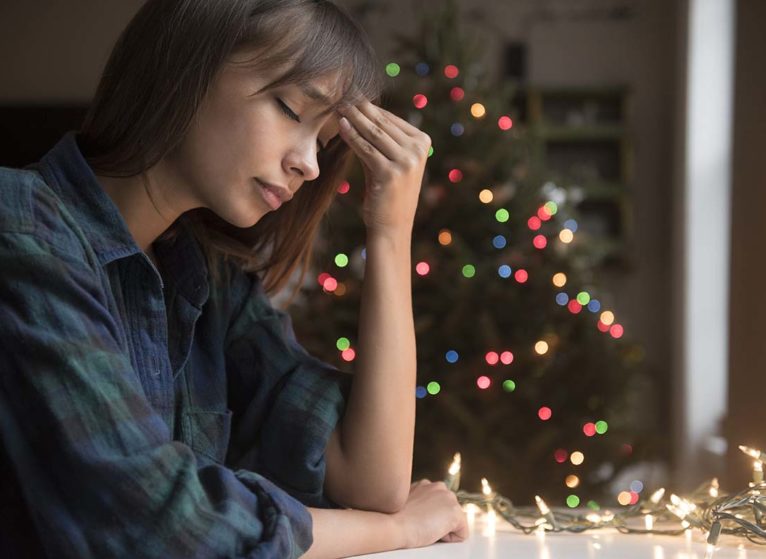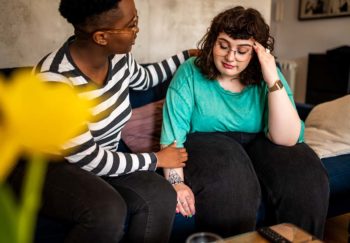For some, the holidays are a magical time with twinkling lights, decorated homes, hot chocolate, and loved ones coming together. But if you’ve lost someone close to you, holiday cheer may be the last thing on your mind.
So how can you deal with grief during the holidays? We asked UVA Health licensed behavioral health therapist Amy Emkes, LCSW, for advice.
Emotional Responses to Grief
Emkes describes grief in its simplest form as “the reaction people experience when losing someone or something they love or otherwise highly value.”
To brace ourselves on what to expect, we may look at the Kubler-Ross original stages of grief. They include:
- Denial
- Anger
- Bargaining
- Depression
- Acceptance
Researchers added shock and testing in recent years. The model may help highlight your emotions. But we shouldn’t expect to grieve in stages, and it’s not linear.
“There is no ‘right way’ to grieve a loss and no set time limit on how an individual may work through it,” Emkes believes.
Physical Responses to Grief
Grief has physical impacts in addition to emotional. You might have:
- Fatigue
- Difficulty concentrating
- Trouble sleeping, including difficulty falling asleep, trouble staying awake, early waking, or sleeping too much
- Increase or decrease in appetite and weight
- Increased susceptibility to illnesses like colds and flu
- Irritability
- Feeling unmotivated
- Lack of interest in people and activities you once enjoyed
Coping With Grief During the Holidays
These intense emotions don’t last forever — you’ll heal. Most grief experts agree the first step is to let yourself feel whatever you need to. This process can look ugly and messy.
Once you are exhausted from the negative, look toward the positive, advises UVA Health chaplain Michelle Chapman-Campbell.
- Reflect on all the good the relationship brought.
- Do what brings you joy. For Michelle, it’s yoga, reading, being outdoors, playing with the grands, and mindless TV.
- Practice self-care. Eat regularly, get sleep and rest, and work in some movement or exercise.
- Spend time with people who love and support you.
- Spend time with your pet(s).
- Look to your spirituality, religion, or belief system.
“Don’t let the negativity, fear, or limitations of this physical body rob you of the life you shared with the people you love and that love you, love is eternal,” says Chapman-Campbell.
Support for Grief During the Holidays
It might help to talk to others experiencing grief during the holidays. Find a support group near you.
You can reach out to your doctor. Primary care doctors are trained to help with mental health issues. They can help you get treatment if you need it.
These resources might also help:
- Capital Caring
- GriefShare
- Grief in Common
- My Grief Angels — offers specific groups for pet loss, Spanish speaking, loss from COVID, LGBTQIA, and healthcare workers
- Grief.com
Emkes stresses that there are additional challenges when you lose someone to suicide. Find resources for this kind of loss from:
- Suicide Prevention Resource Center
- American Foundation for Suicide Prevention
- After Suicide Resource Directory
If you or a loved one are having a mental health crises, call or text 988. The national Suicide and Crisis Lifeline is staffed 24/7/365 by a network of local crisis centers.
In Northern Virginia? You can visit the rooms of reflection at UVA Health Prince William, UVA Health Haymarket, and UVA Health Culpeper medical centers any time. They’re available to people of all faiths and include prayer rugs for Muslim community members and a kneeling bench for Christians.
When dealing with grief at the holidays, remember “we can’t always choose the music life plays for us, but we can choose how we dance to it,” Chapman-Campbell says.


